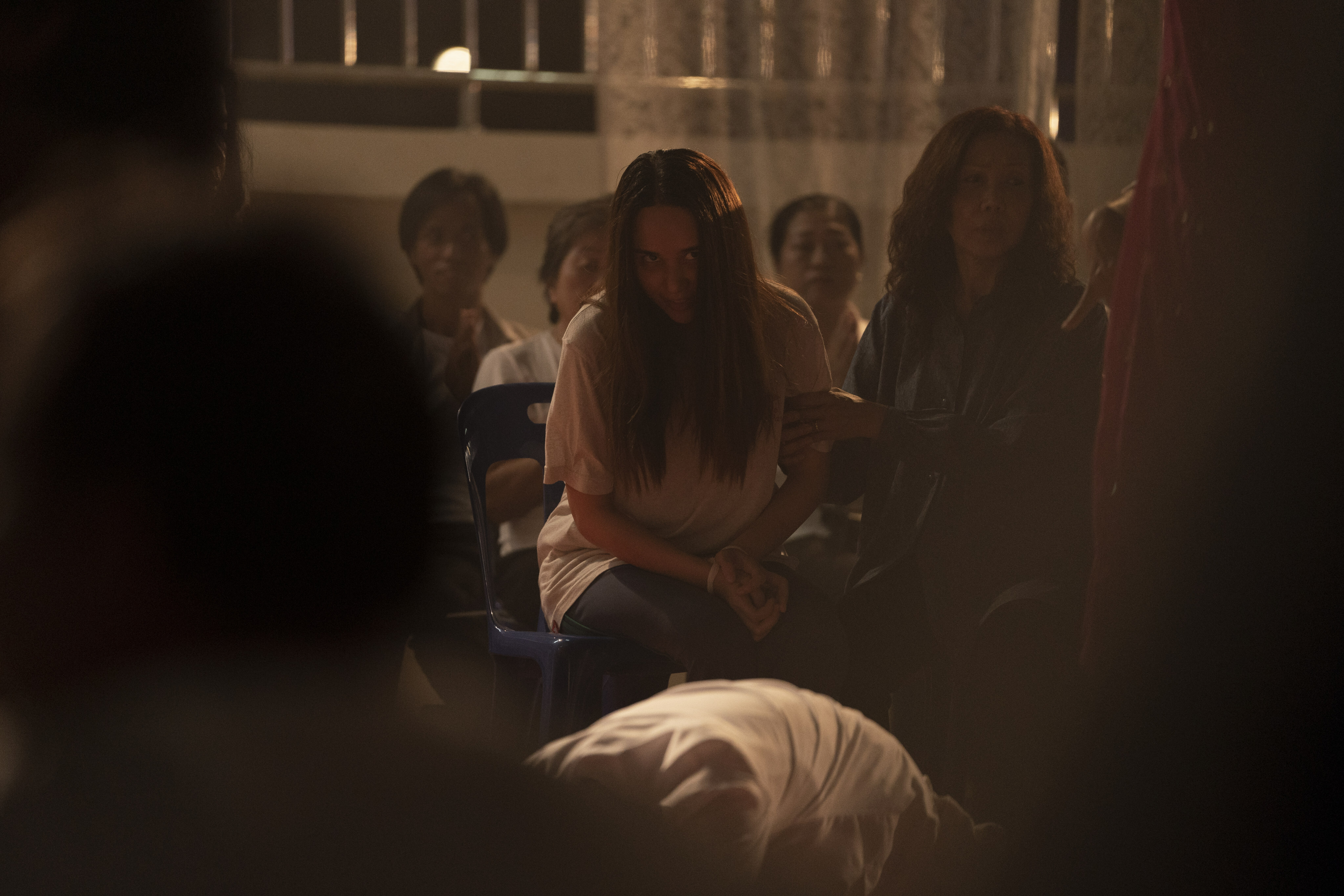

Night Shyamalan’s Split and Glass.) The movie’s opening, which details young Adelaide’s nightmare-it takes place in a ghoulish hall of mirrors on the Santa Cruz boardwalk-is a mini-horror masterpiece by itself, an evocation of the outright weirdness of childhood rather than its wonder: As the girl wanders away from her parents, in an almost trancelike state, she clutches a candied apple so shiny it’s like blood-red crystal ball-and puts us in a trance, too. (Peele’s cinematographer is Mike Gioulakis, who also shot David Robert Mitchell’s It Follows, as well as M. One thing that’s unquestionable: Peele is a dazzling visual stylist. Maybe it’s just the feeling of being trapped in an over-air-conditioned lecture hall, because there’s a strain of preachiness running through the whole thing. (If you don’t know it outright, it’s the one that goes, “Therefore thus saith the Lord, Behold, I will bring evil upon them, which they shall not be able to escape and though they shall cry unto me, I will not hearken unto them.”) The mood of Us is sometimes chilling, but even then, you’re not always sure what, exactly, is chilling you. He’s overly fond of heavy-duty references, including Biblical ones: A creepy dude holds a sign that reads Jeremiah 11:11. Us isn’t always fun to watch there are stretches where it’s plodding and dour.



(The Wilsons also have close friends, Josh and Kitty, played by Tim Heidecker and Elisabeth Moss, who have more money and nicer stuff than they do, a source of irritation for Gabe in particular, and another of the movie’s threads about class consciousness in America.) But Peele doesn’t always lay out his ideas clearly. But be aware that there are others who, through no fault of their own, don’t live at the same comfort level-or are, in fact, barely surviving. Are you and your family doing great? Do you live in a nice place, drive an expensive car, and have plenty of food for everyone to eat? Be grateful for it. That’s a bright, neon-lit Author’s Message if ever there was one, though the idea of using a group of sunlight-deprived semi-zombies as a metaphorical element in a parable about class complacency isn’t necessarily a bad one. At one point a terrified Adelaide asks the other mother, a twin of herself but with vacant, crazy eyes and a demented smile, “What are you people?” “We are Americans,” the lookalike responds, in a whispery growl. But it’s impossible to address any of the movie’s larger ideas without giving away key plot points: Before long, that shadow family has infiltrated the house, and now that we can get a good look, we see that each of them is a not-quite-right replica of a Wilson, dressed in a red jumpsuit and wielding a pair of menacing-looking shears. The effectiveness of Us may depend on how little you know about it going in, so the spoiler-averse may wish to stop reading here. From there, Peele unspools a story of “shadow” people, long forced to live underground but now streaming to the Earth’s surface to claim, violently, what they feel is rightfully theirs. On their first night away, they look out and see a family of four, mute and stony echoes of themselves, standing in the driveway. We meet the comfortably middle-class Wilson family as they’re heading off on vacation to Santa Cruz, the site of Adelaide’s childhood ordeal. Lupita Nyong’o stars as Adelaide, who has overcome a traumatic childhood experience and now has a family of her own, including husband Gabe (Winston Duke) and two kids: graceful, well-adjusted Zora (Shahadi Wright Joseph) and the slightly more awkward Jason (Evan Alex), who wears a wolfman mask pushed up on his head as a kind of security blanket. He overthinks himself into a corner, and we’re stuck there with him. But this time, he’s got so many ideas he can barely corral them, let alone connect them. With the ambitious home-invasion horror chiller Us, Peele goes even deeper into the conflicted territory of class and race and privilege he also ponders the traits that make us most human. Writer-director Jordan Peele’s 2017 Get Out was a brash and intriguing debut, a picture that wrestled with the notion of whether or not America can ever be a post-racial society: Vital and spooky, it refused to hand over easy answers.


 0 kommentar(er)
0 kommentar(er)
